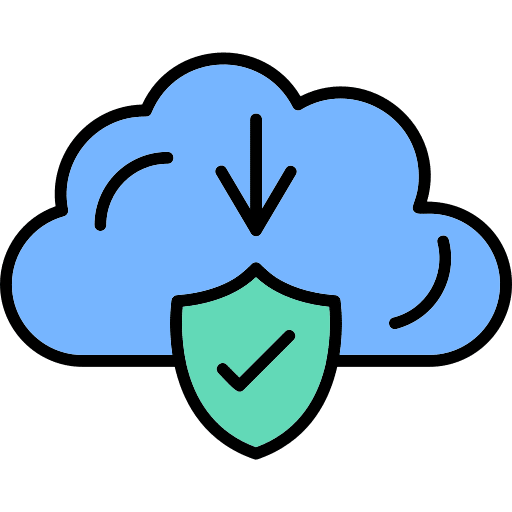Hey guys! I am Mehmet Akar. I have a serious obsession with file security. So, I decided to set up a download website for the first time in the world, where I would prioritize safety and share the virus scanning page of each file. It is not possible for me to present all the files in the world on this website for now, but I will continue to add the files you need the most in line with your requests, while paying attention to copyright.
Is WhatsApp Safe in the U.S., California, Florida, Texas, Pennsylvania and other states ? All we, as living in those states, wonder the answer of this question:
Question: Is WhatsApp Safe in the U.S., California, Florida, Texas, Pennsylvania and other states ?
Answer: I cannot guarantee, it is 100% safe. It has many risk I will count below.
I am Mehmet Akar and I live in San Jose, California. I researched this question and tried to find the answer for you.
Is WhatsApp Safe in the U.S., California, Florida, Texas, Pennsylvania ?
Living here in San Jose, California, with technology all around us, it’s no surprise that so many people turn to messaging apps like WhatsApp to stay connected. Whether we’re chatting with friends across the country or family overseas, WhatsApp makes it easy. But as privacy concerns grow, especially here in the USA where data privacy is constantly in the spotlight, the question comes up frequently: “Is WhatsApp really safe?”
In this article, I’ll walk you through what I’ve found about WhatsApp’s security in the United States, specifically looking at its strengths, weaknesses, and ways you can better protect your privacy. I’ll also suggest some alternatives that may suit users who live in places like San Jose or anywhere else in the U.S., who might be more privacy-conscious.
WhatsApp Security Features: What’s Keeping Our Chats Private?
WhatsApp is packed with security features that have made it popular worldwide, especially among us here in the tech-savvy Bay Area. Here’s a quick look at what they offer to protect our messages:
End-to-End Encryption (E2EE)
One of WhatsApp’s main selling points is its end-to-end encryption. Since 2016, WhatsApp has used encryption to keep messages private between the sender and the recipient. Not even WhatsApp itself can read these messages. This is reassuring, especially given that the U.S. has seen increased scrutiny of digital privacy. For those of us in Silicon Valley, where data security is often top of mind, this is a significant plus.
Two-Step Verification
WhatsApp offers two-step verification, which allows users to set a six-digit PIN for added security. This extra layer can prevent unauthorized access to your account if someone tries to use your number on a different device. It’s a small but important step for anyone who, like me, lives in a connected area like San Jose and knows the value of digital security.
Disappearing Messages and View Once Photos/Videos
WhatsApp also provides disappearing messages and “View Once” media options. These features are perfect for quick exchanges where privacy is a priority. However, remember that recipients can still take screenshots. Even in an area as tech-forward as San Jose, where we’re all about innovation, these features are limited to the software’s built-in protections.
End-to-End Encrypted Backups
Recently, WhatsApp introduced end-to-end encrypted backups. This feature is useful for anyone who stores their chats on Google Drive or iCloud, though you have to enable it manually. Living in the USA, where cloud services are so prevalent, this feature is essential for added peace of mind, especially if you use cloud services heavily.
Privacy Concerns for WhatsApp Users in the USA
Despite WhatsApp’s security features, there are some real concerns for U.S.-based users, including those of us here in California:
Metadata Collection
WhatsApp collects metadata, or information about your messages (like timestamps and contacts), even though it can’t read your messages. Here in the U.S., where data privacy laws are evolving, this can be concerning. In my experience, I’ve found that this data collection can create a digital footprint that some of us may prefer to avoid.
Social Engineering and Phishing Risks
Hackers often use social engineering to target WhatsApp users. This isn’t necessarily a flaw in WhatsApp’s technology but a risk factor. If you’re based in the USA and use WhatsApp for business, family, or friends, it’s important to stay alert to unknown contacts or unexpected messages. Living in an area with a high-tech focus, I know many of us take cybersecurity seriously, but it’s worth reiterating here.
Data Sharing with Meta
WhatsApp’s integration with its parent company, Meta (formerly Facebook), is a point of concern. While they say they don’t share message content, the sharing of metadata between platforms can feel invasive. For those of us in places like San Jose, where tech is closely tied to our daily lives, this raises a red flag. Many of us choose WhatsApp for its convenience, but it’s worth considering how much information you’re comfortable with Meta having.
How to Use WhatsApp More Securely in the USA
While WhatsApp may not be perfect, there are steps you can take to make your experience safer:
Enable Two-Step Verification
Adding a second layer of security is simple and effective. Two-step verification requires a PIN whenever you register your phone number with WhatsApp, making it much harder for others to access your account without permission.
Turn on Encrypted Backups
To ensure your backup data remains secure, enable end-to-end encrypted backups. In the USA, where Google Drive and iCloud are popular, it’s a quick but important step for extra security.
Limit Profile Visibility
Customize who can view your profile picture, status, and last seen information. Limiting these details to your contacts only adds an extra layer of privacy.
Be Cautious with Links and Unknown Contacts
Living in an area as tech-centric as San Jose, we’re used to being careful with our data. If you’re not sure about a link or a contact on WhatsApp, don’t engage until you can verify it’s legitimate. Phishing remains one of the top ways hackers get in.
Considering Alternatives to WhatsApp? Here’s What to Know
If privacy is a significant concern, you might want to consider other apps. Here are a few that are popular among privacy-focused users in the U.S., including in areas like Silicon Valley:
Signal
Signal is an open-source, highly secure app that has become popular for those seeking maximum privacy. With end-to-end encryption and minimal data collection, it’s an excellent choice for Americans who value data security.
Telegram (Secret Chats)
Telegram’s Secret Chats feature uses end-to-end encryption and has a self-destruct option for messages. However, be aware that regular Telegram messages aren’t encrypted by default, so make sure to switch to Secret Chats for more privacy.
Wire
Wire offers strong encryption and privacy, making it popular among privacy-conscious individuals and even businesses. If you’re looking for an alternative to WhatsApp with enhanced privacy, Wire is worth considering.
Frequently Asked Questions About WhatsApp’s Security in the U.S.
1. Is WhatsApp legal and secure to use in the U.S.?
Yes, WhatsApp is legal and widely used in the USA. However, concerns about metadata collection and data sharing with Meta persist. It’s generally secure for most users.
2. Can WhatsApp share data with the government?
WhatsApp cannot access message content due to encryption, but it may be required to share metadata under U.S. law. As a San Jose resident, it’s worth being aware of data laws that may affect privacy.
3. How can I protect my account from hacking?
Enable two-step verification, be cautious with unknown links, and keep WhatsApp updated to protect your account from unauthorized access.
4. Is WhatsApp good for business use in the U.S.?
WhatsApp can be used for business, but businesses handling sensitive information may want to explore alternatives like Signal or Wire for added security.
Is WhatsApp Safe for People Like Me in U.S.?
WhatsApp offers strong encryption, but the concerns about metadata collection and Meta’s data-sharing practices mean that users should proceed with caution. As someone who lives in San Jose, a tech hub where data security is a serious issue, I feel it’s essential to be informed. While WhatsApp remains a solid option for most, those with more privacy-focused needs may want to explore alternatives.
In the end, WhatsApp is likely safe for everyday use here in the U.S., but taking simple security steps like enabling two-step verification and encrypted backups can make a big difference. If privacy is your top concern, you might find Signal or Wire a better fit. Stay informed and make the choice that feels right for you.
Thank God. I live in San Jose, I live in California. I have an education to know is whatsapp safe in U.S. or not?


